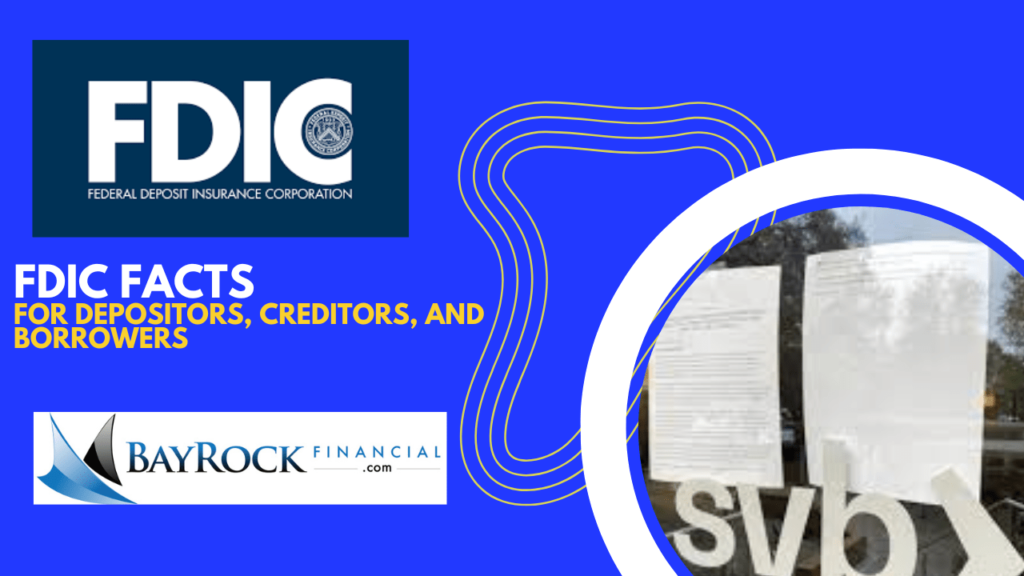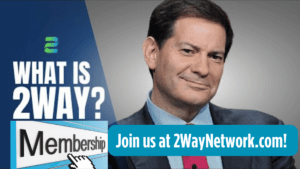FDIC Facts for Depositors, Creditors, and Borrowers
Payment to SVB Depositors
What Happened at SVB and How does the FDIC resolve a closed bank?
In the unlikely event of a bank failure, the FDIC acts quickly to protect insured depositors by arranging a sale to a healthy bank, or by paying depositors directly for their deposit accounts to the insured limit.
Purchase and Assumption Transaction. This is the preferred and most common method, under which a healthy bank assumes the insured deposits of the failed bank. Insured depositors of the failed bank immediately become depositors of the assuming bank and have access to their insured funds. The assuming bank may also purchase loans and other assets of the failed bank.
Deposit Payoff. When there is no open bank acquirer for the deposits, the FDIC will pay the depositor directly by check up to the insured balance in each account. Such payments usually begin within a few days after the bank closing.
When can I expect to receive my money?
Federal law requires the FDIC to make payments of insured deposits “as soon as possible” upon the failure of an insured institution. While every bank failure is unique, there are standard policies and procedures that the FDIC follows in making deposit insurance payments. It is the FDIC’s goal to make deposit insurance payments within two business day of the failure of the insured institution.
Note: Some deposits that require supplemental documentation from the depositors, such as accounts linked to a formal written trust agreement, funds placed by a fiduciary on behalf of an owner such as a deposit broker or deposits placed by an administrator of an employee benefit plan may take a little longer. The timing of the completion of the deposit insurance determination is based solely on the depositor providing the documentation needed by the FDIC to determine insurance coverage.
What if the depositor placed money at the failed bank in the name of a trust?
In determining the insurance coverage for a deposit account opened in the name of a formal trust agreement, either revocable (commonly called a “living” or “family” trust) or an irrevocable trust, the FDIC may request the owner or trustee of the trust agreement to provide the FDIC a current copy of the trust document which the FDIC would review to confirm the applicable amount of deposit insurance coverage. The FDIC would review the trust agreement for the purpose of determining information such as the number of beneficiaries and, if applicable, the interests of each beneficiary. The owner or trustee of either a formal revocable trust or an informal trust deposit may be required to complete a declaration of testamentary trust statement.
For more information on the requirements for revocable living trust accounts or irrevocable trust accounts, see the FDIC’s brochure “Your Insured Deposits” which can be accessed at www.fdic.gov/deposit/deposits/brochures.html
What if the depositor placed money at the failed bank through a fiduciary?
A “fiduciary” is a person (or company) who serves as an agent on behalf of their client(s) in opening or purchasing a deposit (such as certificate of deposit) account at an insured bank. In order to determine the deposit insurance coverage for such deposits, the FDIC will typically need to obtain from the fiduciary supplemental information such as a list of the owner or owners of each deposit and the dollar interest of each owner in the deposit account. As soon as the fiduciary provides the needed information, the FDIC will pay insurance through one of the means previously described.
Although the FDIC will provide pass-through deposit insurance coverage to the actual owner(s) of a fiduciary deposit the FDIC does not pay the deposit insurance directly to the owners or customers. Rather, the FDIC will pay the deposit insurance coverage to the fiduciary. In turn, the fiduciary will be responsible for distributing the deposit insurance payments to their customers. The FDIC does not attempt to supervise the relationships between fiduciaries and customers or the distribution of funds from fiduciaries to customers. Customers are urged to contact their agents/brokers regarding the status of their investment funds, as the FDIC depends on those parties to supply the necessary information to determine insurance coverage.
It is also important to recognize that the FDIC is not responsible for the failure (for any reason) of a fiduciary or a custodian to:
actually establish a deposit account on your behalf in an FDIC insured institution,
maintain proper documentation in support of a deposit account that is made on your behalf
open a deposit account on your behalf that results in uninsured funds.
For more information on the requirements for fiduciary accounts, see the FDIC’s brochure “Your Insured Deposits” which can be accessed at www.fdic.gov/deposit/deposits/brochures.html
The FDIC offers a reference guide to deposit brokers acting as agents for their investor clientele. This site outlines the FDIC’s policies and procedures that must be followed by deposit brokers when filing for pass-through insurance coverage on custodial accounts deposited in a failed FDIC Insured Institution, which can be accessed at www.fdic.gov/deposit/deposits/brokers
How does a bank closing affect interest accruing on my deposits?
The FDIC’s insurance coverage includes principal and interest through the date of the bank failure up to applicable insurance limit for each deposit. The accrual of interest ceases on all accounts once the bank is closed. If an open bank acquires deposits from the failed bank, the acquiring bank becomes responsible for re-establishing interest rates and beginning the accrual of interest after the date of the failure of the bank. The acquiring bank may change the interest rate on the acquired deposits, but the depositor may withdraw their insured funds without penalty if they chose to do so. If no acquiring bank is found for the deposits and the FDIC pays the depositors directly for their insured amounts, interest does not accrue past the date of failure.
What happens to my direct deposits if my bank closes?
If the failed bank is acquired, all direct deposits, including Social Security payments, will automatically be re-directed to the deposit accounts at the acquiring bank.
If there is no acquiring bank, the FDIC typically attempts to find a nearby bank to take over the direct deposit function temporarily, to make Social Security and other government annuity payments available to the customers. Specific information about any changes in the payment of direct deposits will be made available at the office locations of the failed bank.
What happens to checks and automatic payments that have not cleared an account before my bank is closed?
When the failed bank’s deposits are assumed by an open bank, some or all of the offices typically reopen the next business day and there is usually no interruption in the processing of checks drawn on the failed bank. An exception to this procedure may include checks that were drawn against a deposit account that has been determined to be uninsured or an account that the deposit insurance determination is pending.
In a payoff, however, any outstanding transactions or checks presented after the bank has closed cannot be paid or charged against the account. The FDIC needs to freeze all deposit accounts at the time the bank is closed to quickly pay the depositors for the insured deposit balances in their accounts. Any outstanding checks or payment requests presented after the bank failure will be returned unpaid and will be marked to indicate that the bank is closed. This does not reflect on your credit standing. However, it is your responsibility to make other funds available to creditors who receive checks that were returned and did not clear your deposit account because of the bank closing.
Can I continue to use my checks and deposit slips at the new bank?
If there is an acquiring bank, it will accept the checks and deposit slips of the failed bank for a short time. You will receive information about new checks and deposit slips from the acquiring bank.
When can I have access to my safe deposit box?
When the failed bank’s deposits are assumed by a healthy bank, the branch offices usually reopen the next business day. At that time, you will have access to your safe deposit boxes. In the event of a depositor payoff, the FDIC will send a letter to you informing you of the closing. The letter will instruct you on how you can remove the contents of your box. Access to the safe deposit boxes is typically granted to the safe deposit holders the next business day after the closure.
If I have more than $250,000 in a closed bank and I am paid $250,000 by the FDIC, what happens to the amount in excess of $250,000?
If for example, a depositor has only a single account with a balance of $255,000, he or she would be paid $250,000 through FDIC insurance and would receive a claim against the estate of the closed bank for the remaining $5,000 which is not insured. The depositor would be given a Receiver’s Certificate as proof of this claim and would receive payments as the assets of the bank are liquidated.
It is possible to have deposits of more than $250,000 at one insured bank and still be fully insured if the deposits are maintained in different categories of legal ownership.
You can obtain additional information about deposit insurance coverage amounts from the FDIC website www.fdic.gov/deposit/deposits.



